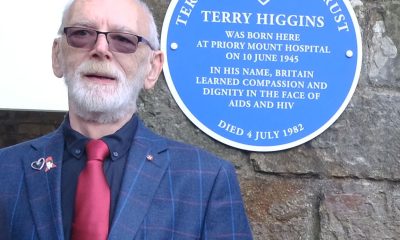News
Tenby: RNLI praised for saving man’s life
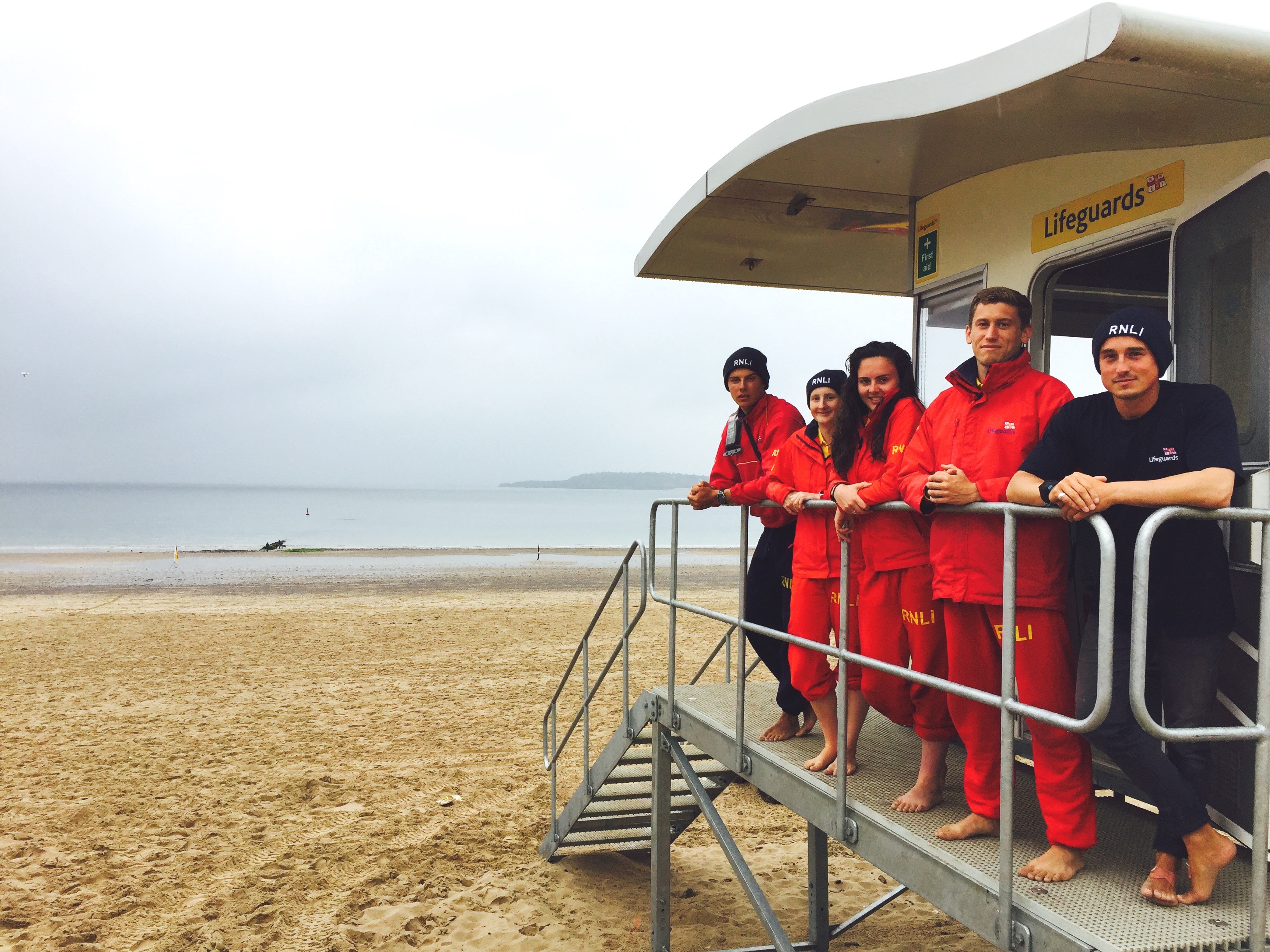

RNLI: Praised for saving the man’s life
RNLI LIFEGUARDS who resuscitated a man found unconscious and not breathing in a beach car park have been praised for their rescue efforts.
The charity’s lifeguards were alerted by a member of the public at about noon yesterday (Jun 28) to a man who had collapsed in the car park at Tenby South Beach.
Senior RNLI lifeguard George Stottor, who was returning from training at Tenby Castle Beach at the time, was first to respond.
Kirk Lester, Senior Lifeguard on duty at Tenby South Beach, immediately called for an ambulance and other support, while fellow duty lifeguards Angus Wyatt and Katie Sutton took first aid equipment and the automated external defibrillator (AED) and joined George in the car park.
George, Angus and Katie found the collapsed man, who was around 60 years old, lying face down unconscious and not breathing.
After carrying out an initial survey of the casualty, the lifeguards, who are all fully first aid trained, immediately started CPR while readying the AED. Working as a team they carried out between 10 and 15 minutes of resuscitation before the man’s heart started beating, he started breathing again and slowly he regained consciousness.
By this time the lifeguard team had been joined by firefighters from Tenby Fire Station, who joined the resuscitation efforts, closely monitoring the man’s condition as he continued to regain consciousness. They made him comfortable until an ambulance arrived to take him to hospital a short time later.
RNLI Lifeguard Supervisor Chris Rigby, who arrived on scene shortly after the man regained consciousness, said: “We were all glad to be able to help this man and we really hope he makes a full and speedy recovery.
“The lifeguards involved in responding to this incident worked together with the local firefighters as a team and when faced with a serious situation their training kicked in to provide an immediate and crucial response.
“As well as being able to respond to water emergencies, our lifeguards are casualty care trained to a high standard and can provide lifesaving treatment in and around the beach environment. We would always encourage people to come to the lifeguard units on our beaches and ask for help if they see anyone in need of assistance on or near the beach.”
News
First dolphin killed by grey seal recorded in Welsh waters

THE FIRST suspected case of a grey seal killing a common dolphin in Welsh waters has been recorded on a Pembrokeshire beach.
Marine investigators believe an adult female short-beaked common dolphin found stranded at Newgale Beach may have been attacked by a small group of grey seals operating between west Wales and the south-west coast of England.
The discovery marks a significant development in what researchers say is growing evidence that some male grey seals are preying on a wider range of marine mammals than previously understood.

Corkscrew injuries identified
The dolphin, measuring around six feet in length, suffered severe “corkscrew” injuries — distinctive spiral tearing of blubber and tissue — which are consistent with previous confirmed grey seal attacks on harbour porpoises.
Mat Westfield, Wales strandings co-ordinator for Marine Environmental Monitoring, said similar incidents had recently been investigated in north Devon.
He said: “It’s the first recorded case in Wales. Because it’s so close geographically to Devon, we suspect it may involve a small number of individual grey seals operating in that area.”
Bite marks were identified on the dolphin’s pectoral fins and around the torn blubber edges — patterns marine pathologists associate with grey seal predation.
The carcass has been sent for further examination. Full laboratory results could take up to six months, with tests expected to determine whether the dolphin had any pre-existing illness or injury.

Behaviour linked to adult males
Dr Izzy Langley, of the Sea Mammal Research Unit at the University of St Andrews, said evidence suggests the behaviour is limited to certain adult male grey seals rather than the wider population.
Grey seals are typically fish-eaters, feeding on sand eels, cod, herring and squid. However, over the past decade researchers have documented attacks on harbour porpoises and even other seal species.
Dr Langley said there was no clear evidence that dolphins targeted in such incidents were already sick or weakened.
She explained that researchers believe the attacks may involve ambush tactics from below, catching dolphins unaware while they forage.
“We’ve always found it difficult to understand how grey seals could kill a healthy dolphin,” she said. “It suggests this may not be an evolved predator-prey relationship, but behaviour developed by individual animals.”
Every confirmed case so far has involved adult male grey seals, leading scientists to suspect the behaviour may be learned rather than instinctive.
Rare but significant
Grey seals are common along the Pembrokeshire coastline and are a familiar sight around Ramsey Island, Skomer and the Marloes peninsula. While attacks on harbour porpoises have been recorded previously in Welsh waters, this is believed to be the first suspected fatal attack on a common dolphin.
Marine experts stress that such incidents remain rare and do not represent widespread predatory behaviour across the grey seal population.
However, the case is likely to prompt further monitoring of strandings along the west Wales coast as researchers seek to understand whether this represents an isolated event — or the emergence of a new behavioural pattern.
Health
Hywel Dda warns of ‘significant pressure’ as A&E departments remain packed
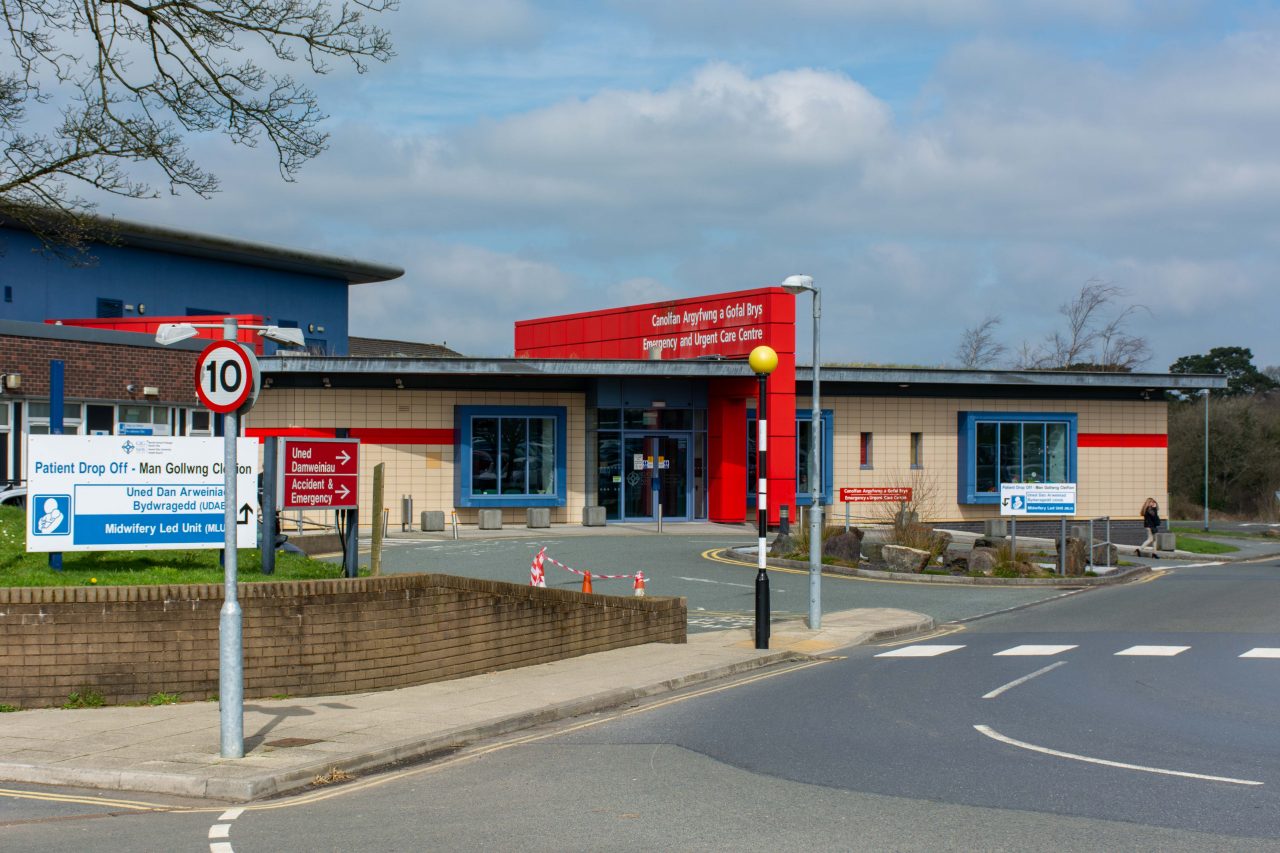
Patients urged to use NHS 111 as Withybush, Glangwili and Bronglais face continued strain
HYWEL DDA University Health Board has warned that its emergency departments remain under “significant pressure,” with particular concern at Withybush Hospital.
In a statement issued on Monday (Mar 2), the Health Board said A&E departments at Withybush, Glangwili and Bronglais hospitals were continuing to experience high demand.
Patients were urged to contact NHS 111 Wales for advice if they are unsure where to seek help, and to use community pharmacies and minor injury units for non life-threatening conditions.
The Health Board said: “Help us to help you get the right care in the right place.”
It added that those with serious or life-threatening emergencies should always call 999.
Delayed discharges impacting flow
The statement also highlighted pressures caused by delayed discharges, urging families to support relatives who are medically fit to leave hospital but are waiting for homecare or community health support.
Bed-blocking, often linked to shortages in social care packages, is widely acknowledged as a key factor in A&E overcrowding, as patients cannot be moved from emergency departments into inpatient wards.
When wards are full, ambulance handovers slow and patients can face long waits for assessment and treatment.
Withybush under particular strain
Withybush Hospital in Haverfordwest was singled out as being under “particular” pressure.
There were no signs yet that things were improving today (Tuesday).
The Health Board did not release figures for waiting times, ambulance delays, or bed occupancy rates in its statement.
However, it confirmed that demand remains high across west Wales.
Alternative services highlighted
The public were reminded that:
- NHS 111 Wales can provide 24-hour advice.
- Option 2 via 111 offers urgent mental health support.
- Community pharmacies can treat a range of common ailments without appointment.
- Minor injury units are available for non life-threatening issues.
The Health Board thanked residents for their support and cooperation during what it described as a challenging period.
News
Vote.wales: Information website launched to give people voting confidence
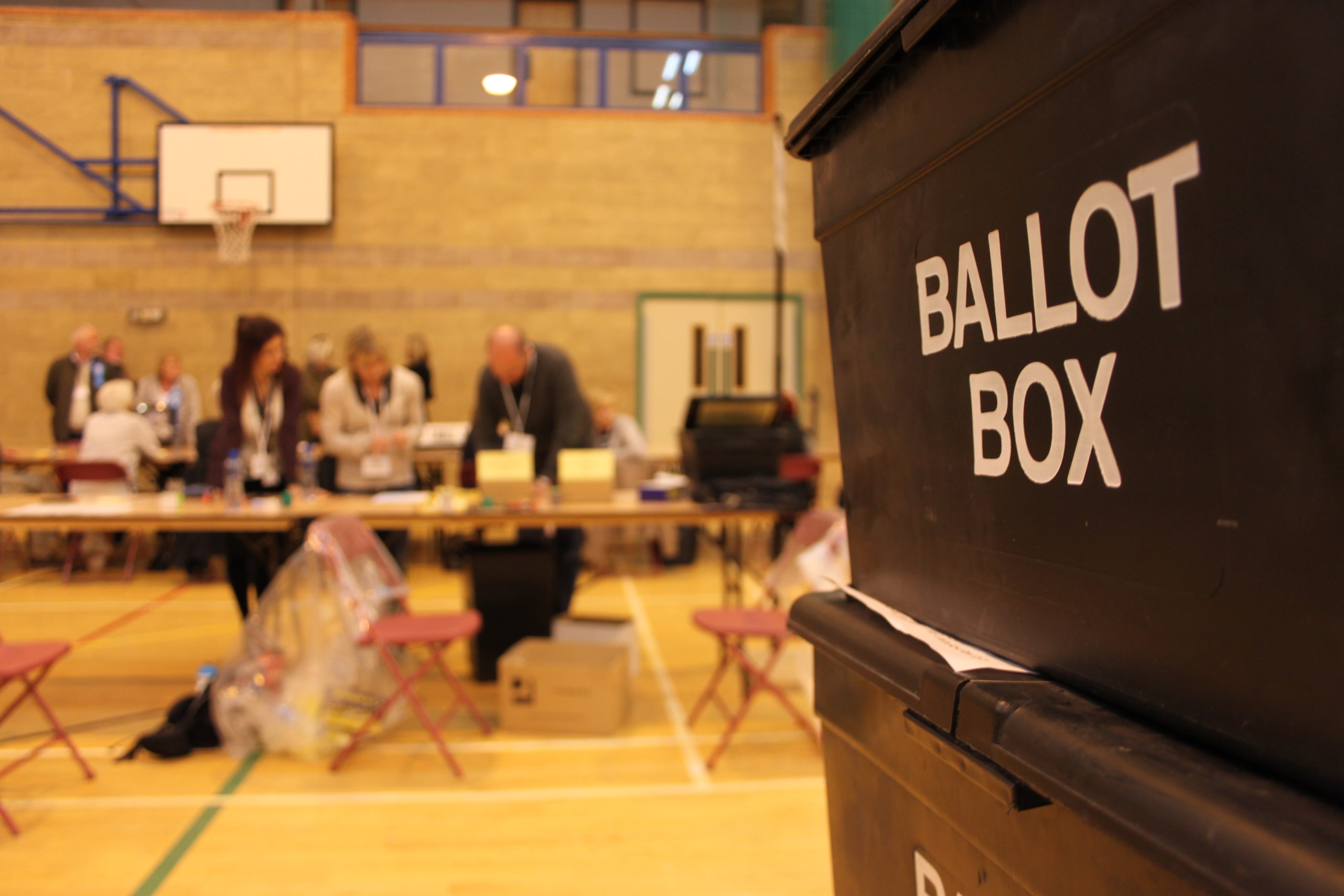
Vote.wales to host all essential election information for the Senedd election
A BRAND new voter information website, vote.wales, has been launched today (2 March) by the Electoral Management Board for Wales, part of the Democracy and Boundary Commission Cymru.
Vote.wales is the first website of its kind in Wales and tells people everything they need to know about the election, including advice about voting, information about the Senedd, and a postcode search function to provide tailored local information.
The website holds information about who can register to vote, how voting works in polling stations, as well as postal and proxy voting, and what accessibility support people can expect when they go to vote.
A postcode search function on vote.wales allows voters to see which of Wales’ 16 new constituencies they will be voting in, as well as telling them where their local polling station is located.
Once nominations have closed, the website will also inform voters which political parties and independent candidates are standing in their area.
The website explains how the Senedd works and what it does, highlighting which policy areas are devolved to the Senedd and which remain the responsibility of the UK Parliament. It also sets out the difference between the Senedd and the Welsh Government.
Further developments are expected in the coming weeks. In a first for Welsh elections, voters will soon be able to access detailed accessibility information about their local polling station. Political parties and independent candidates will also be able to publish their election leaflets on the platform, so voters can see not only who is standing but what they stand for.
Following the election, vote.wales will publish the full election results.
Commenting on the launch, Shereen Williams MBE OStJ, Chief Executive of the Democracy and Boundary Commission Cymru, said:
“An important election is coming on 7 May, and vote.wales is the place to go to find out all about it.
“We know that people across Wales are looking forward to making their voices heard at this election, but many people don’t feel they have all the information they need before they go and vote.
“If you have questions about this election, then head to vote.wales. Voting confidence starts here.”
-

 Health7 days ago
Health7 days agoHealth services row escalates as MSs demand action over Withybush and Bronglais
-
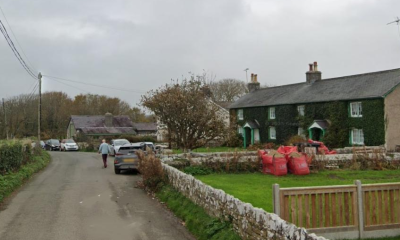
 Business7 days ago
Business7 days agoBosherston Bistro 10pm alcohol licence granted by council
-

 Crime6 days ago
Crime6 days agoMilford Haven pensioner admits sexually assaulting two shop workers
-

 Business6 days ago
Business6 days agoCouncil reviewing complaints over Computer Solutions Wales as concerns continue
-

 Health6 days ago
Health6 days agoPetition calling for Withybush intervention nears 5,000 signatures
-

 News6 days ago
News6 days agoWelsh Government criticised after Russian-linked drone image used in defence announcement
-

 Crime7 days ago
Crime7 days agoManchester men deny aggravated burglary after armed raid on dog breeder
-

 News7 days ago
News7 days agoSenedd backs assisted dying legislation in historic vote














